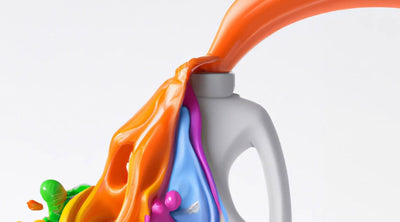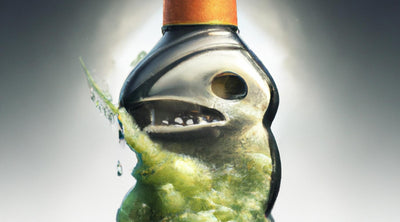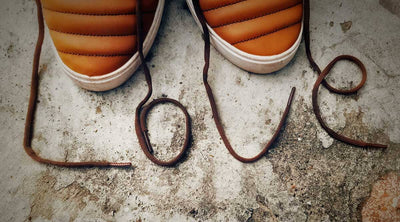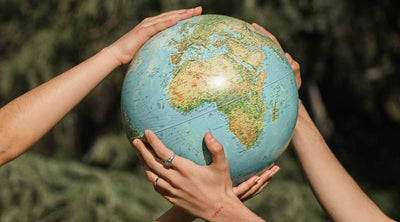14 Of The Best Books On Sustainability
mars 12, 2020
So you’ve decided to live a more sustainable life: that’s great! Living a greener life is a noble goal. But what’s next? How do you change your habits for the better? The journey can seem daunting. Fortunately though, there are many experts out there who’ve published guidance on the topic. To help you embark on your journey, we’ve gathered 14 essential books on sustainability.
Simple Matters: A Scandinavian's Approach to Work, Home, and Style

Jenny Mustard’s 2018 book contains a collection of environmental essays. These are designed to help people live simpler and more sustainable lives. The essays cover a range of subjects including cooking and dining. You'll also learn about efficient travel planning, dealing with failure, and a whole lot more. Importantly, this book doesn’t just teach you how to live a greener life; it also emphasizes prioritizing your wellbeing and chasing your dreams.
Cradle to Cradle: Remaking the Way We Make Things

Cradle To Cradle, one of the best books on sustainability, was published in 2002. American architect William McDonough and German Chemist Michael Braungart are the book’s authors. It is essentially a guidebook to achieving what’s called the “cradle to cradle” design paradigm. Six detailed chapters cover a range of topics related to McDonough and Braungart’s approach to manufacturing. This includes eco-effectiveness, how waste equals food, and respecting diversity. Reading this book will give you an understanding of the importance of upcycling.
101 Ways to Go Zero Waste

Kathryn Kellogg published this important book in 2002. As the name suggests, this manual provides a blueprint to zero-waste living. Throughout the course of its ten chapters, clear and actionable guidance covering an impressive range of day-to-day activities is provided. There are chapters on “kitchen and cooking” and “bathroom products and personal care”. Later chapters explore "work, school and out to eat" and "travel and transportation". This book is perfect for anyone just setting out on their zero-waste journey. It will help you transform every area of your life.
Rebuilding Earth: Designing Eco Conscious Habitats for Humans

The author of 2020’s Rebuilding Earth is award-winning Canadian architect Teresa Coady. This book takes population growth, and attendant living conditions, as it’s launchpad. The global population is projected to reach 9 billion over the next century and Coady argues that this calls for a radical rethinking of how we create habitats. Buildings and cities need to be designed with the environment in mind and she explains how communities can harness green energy. Find out just how important sustainable design and construction work is by reading this book.
The Human Age: The World Shaped By Us

Popular science writer and poet Diane Ackerman wrote this book in 2014. She explores the way the human age (or Anthropocene) has affected the world. Her wide-ranging research covers such fields as evolutionary robotics, biomimicry, and nanotechnology. Importantly, she highlights many of the unsustainable elements of the human age. This includes massive wealth disparity and corporate greenhouse gas emissions.
The many problems humans face are explored in her work but thankfully, so are some useful solutions. Ackerman is convinced about our human capacity to change things for the better. Read this book to learn about the many threats we currently face as well as the amazing possibilities that exist in tackling climate change.
Green, Greener, Greenest

Published in 2008, Green, Greener, Greenest is another of the best sustainability books out there. This piece offers a set of clear steps people can take towards living greener lives. The author, Lori Bongiorno, is a journalist who has written widely on sustainability. Organized into thirteen logical chapters, this book has much to offer budding environmentalists. Topics include food, beverages, pest control, and backyard and garden. There is even a chapter dedicated to "The 3Rs: Reduce, Reuse, Recycle".
Read this book if you want to quickly reduce your carbon footprint. Bongiorno teaches that we all need to make multiple changes to make the world healthier and includes extensive tips for improving your habits and behavior.
Waste Not: Make A Big Difference By Throwing Away Less

Waste Not was written by environmental blogger Erin Rhoads in 2018. Much like many other books out there, Waste Not gives tips for greener living. Where it breaks new ground, is explaining the underlying mechanics of the situation. Rhoads doesn’t just inform you about how to reduce your carbon footprint; she explains why it’s vital that we do, and how different actions can achieve this.
On reading this book you’ll develop a framework for a greener approach to life. You will also have a number of new recipes and hints for your zero-waste journey.
The Story Of Stuff: How Our Obsession With Stuff Is Trashing The Planet, Our Communities, And Our Health-And A Vision For Change

The Story of Stuff was written by Greenpeace USA Executive Director Annie Leonard. This illuminating publication focuses on consumerism and sustainability. It gives an in-depth analysis of the life-cycle of the items we buy and use every day, for instance, our bottled water, clothes, and mobile phones. You will discover how these are all made, and what happens to them once you throw them away. Crucially, Leonard convincingly shows that our consumer habits are killing the planet and we are draining the world of its resources. However, the book also sheds light on effective solutions to the problems we’ve created.
The Conscious Closet: The Revolutionary Guide To Looking Good While Doing Good

The conscious closet was released to wide acclaim in 2019. In it, fashion writer Elizabeth L. Cline encourages everyone to dress ethically. This work builds on her previous evaluation of fashion’s impact on the environment. Here though, the focus is on practical ways that we can do better. To that end, Cline has many useful suggestions by explaining how to trim back your closet’s contents.
Readers are encouraged to resell, repurpose, or recycle items they don’t want anymore. The fundamentals of caring for and repairing your clothes are set out. In short, you can find out how to look good while also doing good by protecting the planet.
Zero Waste Home: The Ultimate Guide to Simplifying Your Life by Reducing Your Waste

Zero Waste Home is one of the best books on sustainable living. US-based environmental activist Bea Johnson published this masterpiece in 2013. The book details Johnson’s mission to reduce her household waste. She, along with her husband and two children, now only generate one quart of rubbish a year. Additionally, they’ve reduced their household spending by around 40%. If that weren’t enough, they’re also healthier than ever.
Learn how the Johnson’s accomplished all this, then apply the lessons to your own life, and reap the same rewards. The text is full of useful advice and tips to make your home zero waste.
EcoBeauty: Scrubs, Rubs, Masks, Rinses, And Bath Bombs For You And Your Friends By Lauren Cox & Janice Cox

This 2009 book is for anyone who loves cosmetics and luxurious bathroom products. The authors are natural beauty experts Lauren and Janice Cox. In EcoBeauty they share their extensive knowledge on sustainable beauty. The book provides 100 different environmentally friendly projects for you to try. This includes espresso facial masks and chocolate brownie lip gloss. All use household ingredients that are easy to get hold of, such as green tea and soy milk.
Buy this book to learn how to look your best without damaging the environment.
Plastic Purge: How To Use Less Plastic, Eat Better, Keep Toxins Out Of Your Body, And Help Save The Sea Turtles
Ecologist Michael SanClements wrote this environmental book in 2014. He manages to explain the sheer scale of the global plastic problem, making excellent use of cutting-edge scientific data. SanClements describes exactly how the toxins from plastic are affecting us all. In doing so, he conveys the health risks of continued plastic use.
Nevertheless, SanClements also offers solutions to the problem. He divides plastic into three categories: the good, the bad, and the ugly. Readers will learn which items are “good” (such as medical equipment), and which ones are “bad” and “ugly”. These categories, which include particularly damaging items like single-use plastic and plastic wrapping, should be avoided as much as possible.
Overdressed

Have you ever wondered how some clothes can be as cheap as they are? In 2012’s Overdressed, Elizabeth L. Cline argues that this is something we should all wonder about. She makes the case that cheap fashion is severely harming our planet. Throughout the book, Cline maps out the cheap fashion industry and in doing so, provides a convincing account of the damage being done.
The content covers everything from terrible working conditions in Bangladesh to carbon emissions from bulk transport. Additionally, Cline shows that the quality of clothes has dropped with their prices. Constructively, she also presents ways to escape this cycle. Readers will find out how to buy clothes without harming the planet.
In Defense of Food: An Eater's Manifesto

In Defense of Food is a 2008 book by journalist Michael Pollan. Here, Pollan develops a new mantra for healthy eating – “Eat food. Not too much. Mostly plants.” – and contends that the nutrition industry is wrong in much of its assertions. Accordingly, people should ignore it and have a mainly plant-based diet. Readers will learn all about the benefits of this approach to dining and how it also helps to reduce your carbon footprint.
Find Guidance Through Books On Sustainability
Your zero-waste mission will be much easier with the help of these books on sustainability. You’ll learn new ways to reduce your carbon footprint and get a range of tips for better living. You might save money, discover new cosmetic tricks, and find fashion advice all from a few good sustainability books.
MORE Sustainability 101 ARTICLES View all ›
Ready to make
the switch?
- Powerful Cleaning
- Dissolves Easily
- Skin-Friendly
- Eco-Friendly
- No Mess














